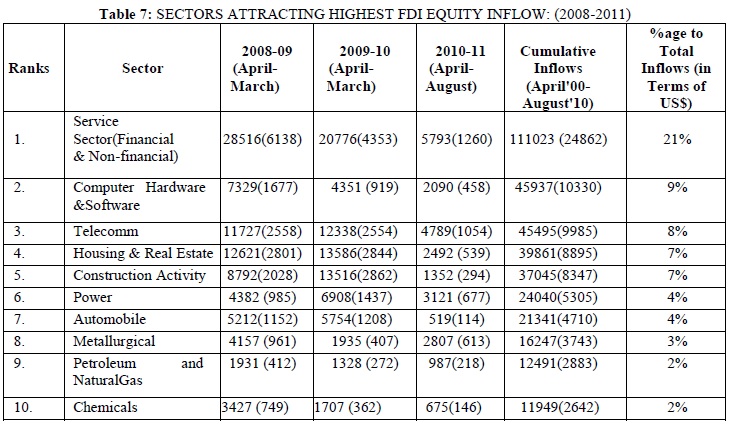A Study on Impact of Foreign Direct Investment and its Challenges Post Liberalization
DOI:
https://doi.org/10.54741/mjar.3.5.4Keywords:
challenges and opportunities, financial reforms, foreign direct investment, liberalizationAbstract
In the beginning of liberalization when India was facing the financial crises for meeting the external commitments, during the Prime minister Chandra Sekhar government, India had to pledge its gold before World Bank to repay the foreign debts as India had only $ 1 billion foreign exchange reserves, at the same time, the immediate external payment was more than $ 25 billion. Therefore, India was bound to opt for liberal economic policy for the inflow and outflow of foreign investment and depreciation of Indian rupees by 300% in comparison of dollar from rupees 8 to rupees 28 per dollar. By which the foreign investors started attracted and investing their funds in India, as the India had and has potential for the growth and diversification of business, since then the India has made remarkable progress in the field of foreign direct Investment but there are lot many challenges and issues needs to be resolved to promote and attract foreign direct investment. The following issues and challenges are listed in the papers: lack of transparent and specific sectoral FDI policy and a limited FDI regime Contributing factors include high tariff rates compared to international standards, a lack of state government decision making power, a limited number of export processing zones, the absence of exit barrier liberalization, stringent labor laws, financial sector reforms, fluctuating exchange rates, and unclear political leadership. In this post, the authors have made an effort to update the best and most plausible conclusions for the justification of foreign direct investment.
Downloads
References
Russell A. Jackson. FDI uses predictive modelling to plan smoother operational, structural changes. Available at: http://www.simio.com/company/press-center/news/FDI-Uses-Predictive-Modeling.pdf.
Singh Diaram Ramjee. The determinants of FDI in small developing nation states: An exploratory. Available at: http://www.centralbank.org.
KhanH., Ashfaque, & KimYun-Hwan. Foreign direct investment in Pakistan: Policy, issues and operational implications. Available at: http://www.adb.org/Documents/EDRC/Reports/ER066.pdf.
Bajpai Nirupam & Sachs D. Jeffrey. Foreign direct investment in India: Issues and problems. Available at: http://www.earth.columbia.edu/sitefiles/file/about/director/pubs/759.pdf.
OECD India Investment Roundtable. Opportunities and Policy Changes in India, Available at: http://www.oecd.org/dataoecd/8/17/33806126.pdf.
Douglas H. Brooks, Emma Xiaoqin Fan, & Lea R. Sumulong. Economics and Research Department: ERD Working Paper Series No. 38. http://www.abd.org/economics.
DIPP. Opportunities and policies challenges for investment in India. Available at: http://dipp.nic.in/oecd_backpaper/THE%20GOVERNMENT%20INVESTMENTNEXUS.pdf.
NCAER. FDI in India and its growth Linkage. Available at: www.ncaer.org/downloads/journals/macrotrack_march2010.pdf.
FungK.C., & Alicia Garcia-Herrero. Foreign direct investment out flow from China and India. Available at” www.apeaweb.org/confer/hk10/papers/fung-garcia.pdf.
Ramkishan S. Rajan, Sunil Rongala, & Ramya Ghosh. Attracting foreign direct investment to India. Available at: www.assocham.org/.../List%20_of_Eminent_Article_Contributors-2011.pdf.
DIPP. Fact sheets of FDI in India/ Available at: palashbiswaslive.blogspot.com/.../pranab-just-set-mood-with-his-budget.html.

Downloads
Published
How to Cite
Issue
Section
License
Copyright (c) 2023 Dr. Prithvi Raj Sanyal, Sunita Kumari, Dr. Kartikey Bhardwaj

This work is licensed under a Creative Commons Attribution 4.0 International License.
Research Articles in 'Management Journal for Advanced Research' are Open Access articles published under the Creative Commons CC BY License Creative Commons Attribution 4.0 International License http://creativecommons.org/licenses/by/4.0/. This license allows you to share – copy and redistribute the material in any medium or format. Adapt – remix, transform, and build upon the material for any purpose, even commercially.









